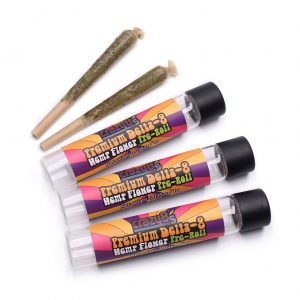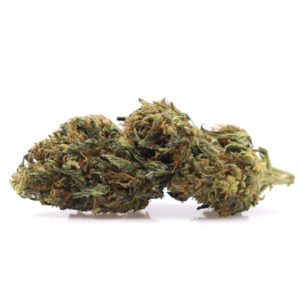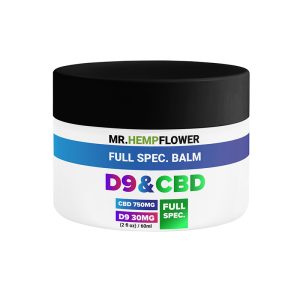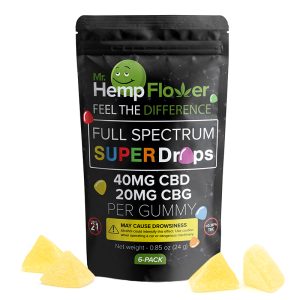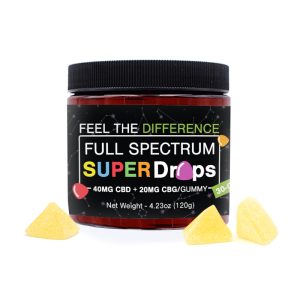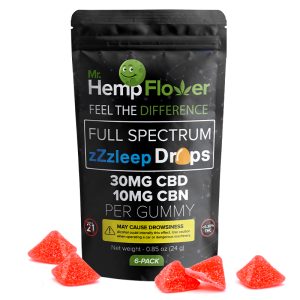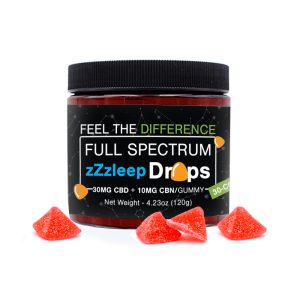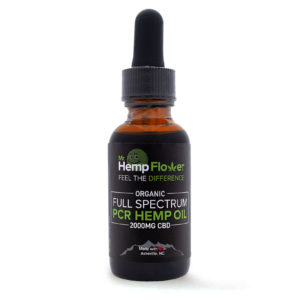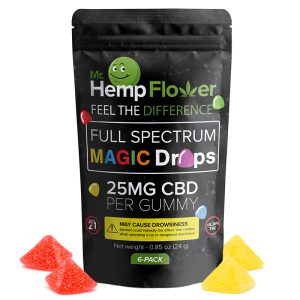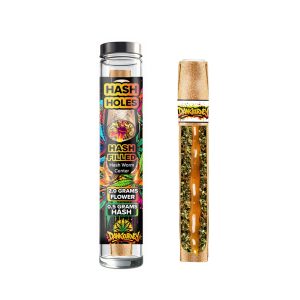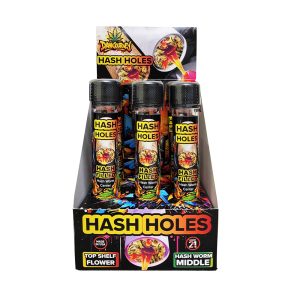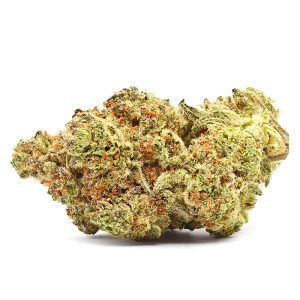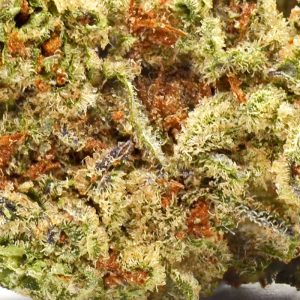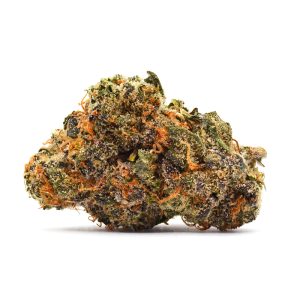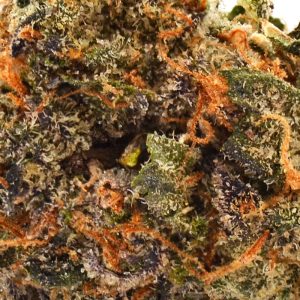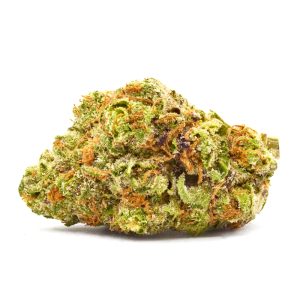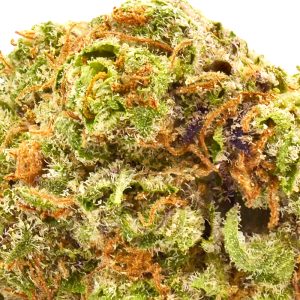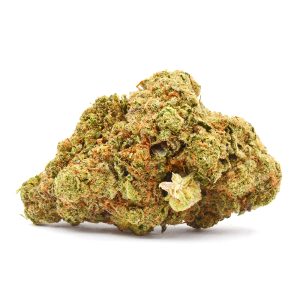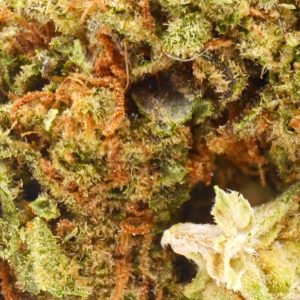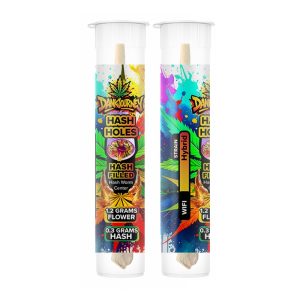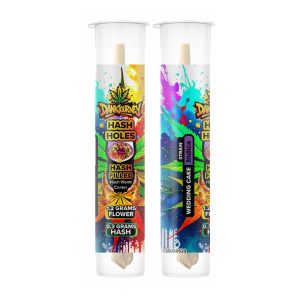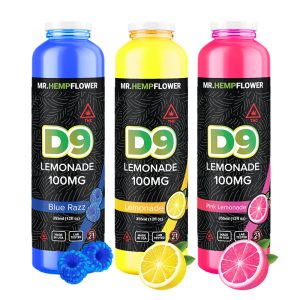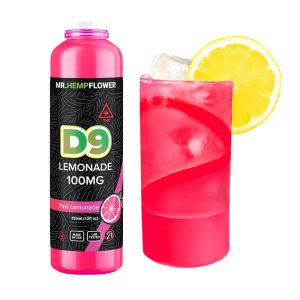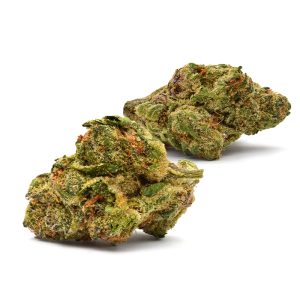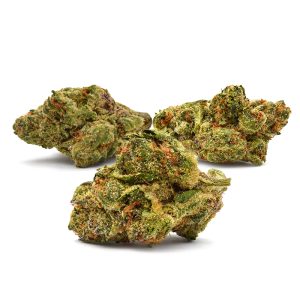What Is THCV?
Tetrahydrocannabivarin (THCV), also known as “diet weed,” is another minor cannabis compound. Based on limited research, THCV offers a few benefits to the body, including appetite control and improved focus.
This cannabinoid is found in high concentrations in southern African cannabis strains. Here’s everything you need to know about THCV.
What Is Tetrahydrocannabivarin (THCV)?
Tetrahydrocannabivarin (short: THCV) is a rare cannabinoid found naturally in native cannabis strains like African sativa.
This minor compound is a homolog of delta-9 THC and shares a nearly identical chemical structure with THC. The only difference is in the length of their alkyl side chain — the chain that impacts the biological activity or potency of the cannabinoid.
THCV has a shorter alkyl side chain with only three carbon atoms, while delta-9 THC has a longer side chain with five carbon atoms. This subtle difference makes THCV much less potent than delta-9 THC and even delta-8 THC.
THCV is about 25 percent as potent as delta-9 THC.
For comparison, the strongest cannabinoid to date, THCP, is up to 30 times stronger than delta-9 THC. This cannabinoid has a long alkyl side chain of seven carbon atoms.
How Does THCV Work?
THCV works in the body like other cannabinoids — by interacting with endocannabinoid receptors. These receptors are part of the endocannabinoid system, an extensive network of cell receptors that mediates sleep, pain, mood, immunity, and reproductive health.
The two main endocannabinoid receptors are CB1 (cannabinoid receptor type 1) and CB2 (cannabinoid receptor type 2).
The CB1 receptor group is scattered throughout the central nervous system and is responsible for producing the mind-altering effects of cannabinoids. The CB2 receptors are located in immune cells, the tonsils, and the spleen — and regulate essential immune-related functions in the body.
Unlike THC, which is a CB1 agonist, THCV is a CB1 antagonist (similar to CBD). This means that THCV produces the opposite cannabimimetic or cannabis-like effects from THC.
CB1 receptor antagonists block or dampen the biological response of the receptor rather than activate it. By this logic, THCV shouldn’t cause any mind-altering effects because it blocks the receptor, so it’s confusing how it still stimulates the brain in high doses. In low doses, THCV is non-psychotropic.
This cannabinoid is a partial agonist of CB2, but researchers have yet to explore this side of its binding affinity and how it affects the user.
Is THCV Safe?
We’ve got much to learn about this cannabinoid, but, like other THC analogs, it’s mostly safe to try. The first human studies haven’t reported significant side effects from THCV taken at a dosage of 10 mg per day for 13 weeks [1].
The participants of the human study reported tiredness as an adverse effect, so that’s something to keep in mind if you are prone to brain fog or lethargy.
The most notable side effect of this cannabinoid is decreased appetite, so THCV should be avoided by people looking for a hemp compound that stimulates appetite.
With that said, we don’t have extensive research on this cannabinoid, so it’s important to avoid taking it when using other medications to prevent potential drug interactions.
How Is THCV Made?
THCV is directly extracted from hemp plants.
Makers use chromatography for THCV extraction, a commonly used process for pulling out cannabinoids like THC. This process separates the cannabinoids from a mixture.
So, THCV products contain naturally extracted cannabinoids and are available as tinctures, vape carts, edibles, and pre-rolls.
Is THCV Natural?
Yes, THCV is a natural cannabinoid in hemp plants.
It can be formed as delta-9 THCV (the one we’re talking about in this article) or as delta-8 THCV. Most major cannabinoids, including THC, CBD, and CBG, are a byproduct of cannabigerolic acid (CBGA), but not THCV.
This cannabinoid is a byproduct of CBGVA (cannabigerovarin acid). CBGVA breaks down to CBGV, which converts to THCVA and eventually into THCV when exposed to heat and light (decarboxylation).
Is THCV Psychoactive?
Yes, but only in large doses.
This minor cannabinoid is pretty unique because its effects are dose-dependent — high doses are psychoactive, while low doses are non-psychoactive.
This THC homolog falls somewhat between CBD and THC because, depending on the dose, it can share the same effects as both cannabinoids.
Typically, doses lower than 30 mg are non-psychotropic and keep the user in a clear-headed, focused state. Doses higher than 30 mg kick in with more psychoactive effects.
THCV Effects & Benefits
Even though it doesn’t cause a psychoactive state in low doses, THCV is known for its energy-boosting effects.
You can expect to feel more clear-headed, alert, and awake, which makes THCV best suited for the daytime. It’s closer in effect to delta-9 THC (but much milder) than to delta-8 THC, that’s more sedative and relaxing.
Anecdotal evidence shows that THCV may cause:
- An increase in mental energy
- Improved focused
- Tunnel vision effect
- Altered perception of colors and sounds
THCV may feel strange because it affects cognition, but because it’s mild, the user stays sober with a sharper mind. THC and THCV are different because the latter doesn’t cause drowsiness, a common THC side effect.
Limited studies show the following potential benefits of THCV:
THCV May Curb Appetite
Cannabis is often associated with increased appetite, but THCV may be beneficial for reducing appetite. Animal research shows that this cannabinoid reduces appetite through its ability to block the CB1 receptor, that’s a well-known appetite stimulant.
A 2009 animal study showed that THCV might reduce weight by lowering food intake [2], while a 2013 study showed that THCV might reduce obesity-associated glucose intolerance [3].
One human study investigated the effects of THCV on type 2 diabetic patients. The double-blind study revealed that 5 mg of THCV, administered twice a day for 13 weeks, improved diabetes metrics (decreased fasting plasma glucose) without showing much reduction in appetite or body weight [4].
THCV May Reduce THC’s Side Effects
According to another small human study (2015), THCV may significantly reduce some of THC’s side effects.
The researchers discovered that 10 mg of pure THCV taken orally may inhibit some of THC’s side effects, like psychotic symptoms, paranoia, or impaired short-term memory. The participants in the study still experienced intoxication from THC, but most of them reported that THC was subjectively less intense when paired with THCV [5].
Will THCV Make You Fail A Drug Test?
Yes, you will likely fail a drug test after using THCV.
THCV products are milder than other THC products, so this cannabinoid is typically mixed with other THC isomers. Also, THCV is a homolog of delta-9 THC, and they share an almost identical chemical structure.
Standard drug tests are not sophisticated enough to distinguish between different cannabinoids, so it’s very likely that you’ll test positive after using THCV.
Your chances of failing a test after consuming this cannabinoid are higher within the first two weeks. The dosage, frequency of use, your metabolism, and the delivery method also play a role in how long this cannabinoid will stay in your system.
Is THCV Legal?
The legal status of THCV in the United States is murky.
This cannabinoid is not explicitly listed as a Schedule I Drug, but if derived from marijuana, it’s considered illegal. Another gray area is that THCV is a THC analog and, as such, can be regarded as an illegal substance by default under the Federal Analog Act.
As a cannabinoid that naturally occurs in the hemp plant, THCV is entirely legal. The 2018 Farm Bill legalized the hemp plant and all its cannabinoids and derivatives — so if extracted from hemp, THCV is a legal substance.
Type of THCV Products
Where can you find THCV?
African sativas are the strains that contain the highest levels of THCV naturally.
Strains like Durban Poison, Cherry Pie, and some hybrids contain this cannabinoid. If cannabis is illegal in your state, you can purchase this cannabinoid separately.
There are plenty of THCV gummies, tinctures, and vapes available on the market. They are typically mixed with other cannabinoids, including delta-8, delta-9, and THC-O. So, be sure to check the laws in your state for THC and its isomers before buying.
You can instead go for legal delta-9 THC products, like our Delta-9 THC Sleep Gummies. Our gummies contain 10 mg delta-9 THC, 2 mg cannabinol (CBN), and 2 mg melatonin, and they will enrich and ease your evenings. They are 100 percent legal federally because they are made from hemp, and their THC content doesn’t exceed the 0.3% threshold.
Conclusion: What Is THCV?
Tetrahydrocannabivarin (THCV) is a homolog or a close relative of delta-9 THC. It causes milder effects and is lower in potency than THC.
This cannabinoid occurs naturally in cannabis, mostly African sativa strains. Since it’s a natural hemp cannabinoid, THCV is legal in the US if derived from hemp.
FAQs on What is THCV?
What are the benefits of THCV?
Some of the potential benefits of THCV include blood sugar management, bone growth promotion, and reduced inflammation.
Is THCV stronger than delta-8?
No, THCV is half as potent as delta-8 THC and about 25 percent as strong as delta-9 THC.
How strong is THCV?
THCV is intense and stimulating in large doses and is about 25 percent as potent as delta-9 THC.
What are the side effects of THCV?
Although THCV is mostly safe, some adverse effects experienced by participants in human studies include tiredness and decreased appetite.


